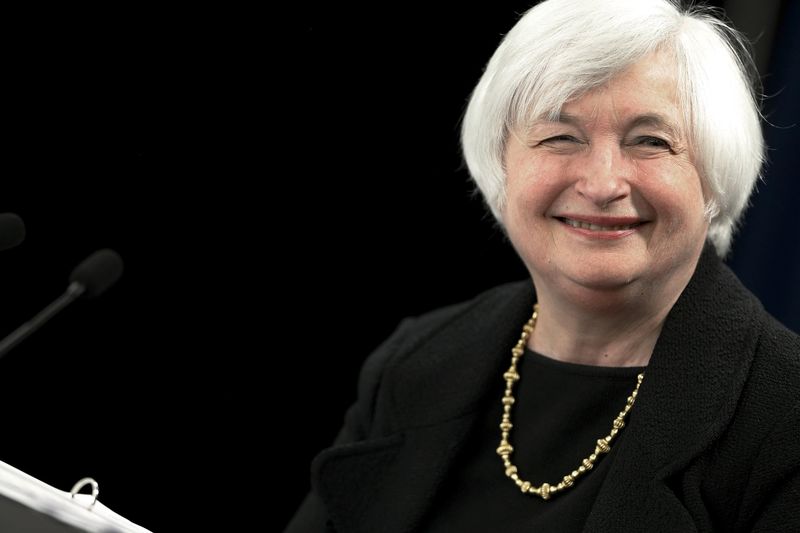SAN FRANCISCO (Reuters) - Market-based measures of the outlook for inflation are poor predictors for actual inflation, research published Monday by the San Francisco Federal Reserve Bank shows.
Federal Reserve Chair Janet Yellen said last week the drop in market-based inflation expectations over the past month had caught the Fed's attention, and the Fed's statement explaining the central bank's decision to hold rates steady also mentioned the decrease.
Worries about low inflation indeed were a main reason policymakers did not raise interest rates, several Fed officials have since said.
Those worries notwithstanding, market-based measures of inflation expectations probably say little about where inflation really is headed, the paper said.
"In particular, they perform much worse than forecasts constructed from survey expectations of future inflation, which incorporate all the information used by professional forecasters," wrote Michael Bauer and Erin McCarthy, both researchers at the San Francisco Fed. The best forecast for future inflation, they found, has historically been the Fed's target of 2 percent.
"Our results add to the discussion about how much attention policymakers and professional forecasters should pay to market-based inflation forecasts," they wrote.
Minneapolis Fed President Narayana Kocherlakota has long argued that the decline in market-based measures of the inflation outlook should play into monetary policy decision-making because it suggests that investors are losing faith in the central bank's commitment to its 2-percent goal.

The paper suggests that policymakers should look elsewhere for inflation outlook data to inform their rate decisions.